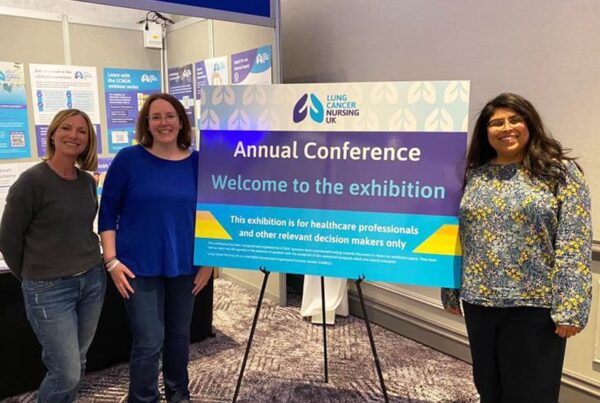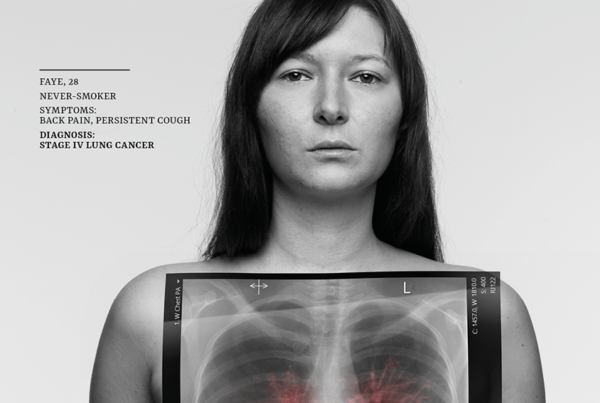Lung cancer kills more than 4,300 people every day globally.
The disease remains almost as difficult to treat today as it was 40 years ago, with currently only 5% surviving their disease for 10 years or more. Around 10-15% of lung cancer patients are never-smokers and they are often women diagnosed at a late stage when the cancer has already spread. RSF is committed to raising awareness of rare, non-smoking lung cancers and funding research, so we can better understand how to diagnose, treat, or even prevent them.
TRACERx is a world-leading research project that’s helping achieve this; funds raised by the Ruth Strauss Foundation will contribute to this ground-breaking project.
TRACERx is a research study following lung cancer patients over time to understand how the cells in their tumours evolve. The findings could help make treatments targeted to each individual patient’s cancer a reality for people with lung cancer, one of the hardest cancers to treat.
The project is led by Cancer Research UK’s Chief Clinician, Professor Charles Swanton, and involves a team of more than 225 researchers around the UK, who are mapping the differences between individual lung cancer cells from diagnosis through to disease relapse.
They are collecting and analysing blood and tumour samples from nearly 800 patients with lung cancer, including patients with the rare forms of lung cancer that are usually found in people who have never smoked. This will help increase our understanding of the differences between these types of lung cancer and build vital insights that we hope will lead to more effective therapies for patients.
No research team has ever looked at lung cancer in this kind of detail before, and the science is poised to change the future of lung cancer, providing the research community with the information it needs to make much needed advances in effectively treating lung cancer in both those who have never smoked and those who have. Funding from the Ruth Strauss Foundation is helping Cancer Research UK make this study possible, and together we will bring forward the day cancer is cured.



